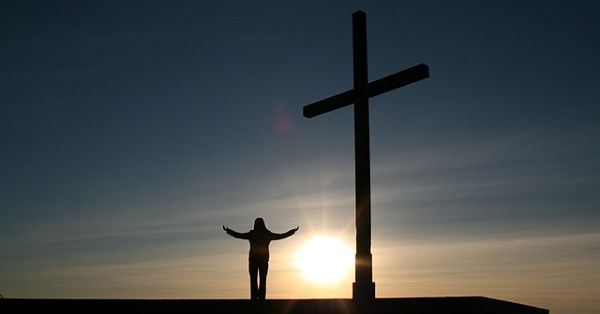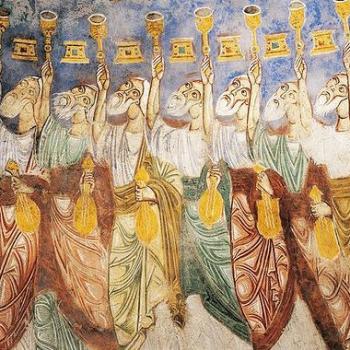Remembering Billy Graham (1918-2018)
On Wednesday, February 21, American evangelist Billy Graham passed away just months before his one hundredth birthday. By all accounts he had been an invalid for a few years which is probably why the national media did not spend as much time reporting on his life and death as they did when Pope John Paul II died.
I remember thinking to myself, while watching the lengthy and elaborate journalistic and media encomiums for the pope, “I wonder if they will do the same for Billy Graham when he finally passes away?” They did not. Most of the national news programs spent about five to ten minutes on Graham’s life, career, and death. The reason for the discrepancy is, I suppose, that many millennials hardly even know who Graham was as they were born when he was already going into retirement.
It’s amazing, however, how brief our collective, cultural memory is.
Billy Graham was a unique phenomenon, a force of nature, one of the most admired and influential men of the twentieth century. Many critics like to point out what they perceive as his unjustified forays into politics, but those who know his biography well know he did not seek out friendships with presidents, for example, but was sought out by presidents (of the U.S.). And he rarely, if ever, dabbled in partisan politics or attempted to shape public policy.
*Sidebar: The opinions expressed here are my own (or those of the guest writer); I do not speak for any other person, group or organization; nor do I imply that the opinions expressed here reflect those of any other person, group or organization unless I say so specifically. Before commenting read the entire post and the “Note to commenters” at its end.*
When I was growing up in the “thick” of American evangelicalism in the 1950s and 1960s Billy Graham was our hero and the figurehead leader of our evangelical movement. He was not only an evangelist but also founder of numerous evangelical organizations. A religious empire formed around and under him—one of which we evangelicals were proud.
Graham became a litmus test figure—for identifying who might be truly “evangelical” (in the “post-fundamentalist” sense) and who might not be. Although he grew up in the “thick” of the Southern fundamentalist movement, during the 1950s especially he left that behind even as many of his fundamentalist mentors left him and began joining more liberal critics in criticizing him (for very different reasons, of course).
I remember attending two of Graham’s evangelistic “crusade” meetings. One was in Omaha, Nebraska in about 1964 and the other one was in Minneapolis (the headquarters city of his over-arching ministry organization) in about 1998. The second one was supposed to be part of a “farewell” tour of preaching events as Graham was contemplating retirement. About sixty thousand people attended the meeting—at the (now destroyed) Hubert H. Humphrey Metrodome in downtown Minneapolis. Many of them were outside the venue watching on large screens because there was not sufficient seating in the “dome” itself.
When Graham published his 1997 massive autobiography Just As I Am (HarperCollins) I was asked by the Minneapolis Star Tribune to write a rather lengthy review of the book which I did. The book is “chock full” of anecdotes about Graham’s life and especially interesting are those about his friendships with many celebrities including Martin Luther King, Jr. It seems that there was almost nobody of any real importance in the U.S. (and elsewhere) Graham did not meet and, in most cases, they sought him out—to bask in his fame and often to attempt to gain something from him.
In spite of his fame and renown, however, by most accounts, Graham was one of the humblest of celebrities. He did not become wealthy; he accepted a relatively modest salary from his organization and lived a relatively modest lifestyle. Sexual scandal never touched him and the few times when critics attempted to expose financial scandal in his organization Graham himself came out smelling like a rose.
Did he have faults and flaws—beyond theology which, of course, was controversial with both fundamentalists and liberals? Absolutely. “Nobody’s perfect.” He was the first to admit his own faults and flaws. When he uttered a seemingly anti-Semitic remark or agreed with one uttered by President Nixon he groveled for forgiveness to the rabbis of the American Jewish community. There is no other hint of anti-Semitism in his career and Graham himself admitted he was “taken in” by Nixon and fell under his spell. After Nixon resigned Graham publicly declared that his days of hanging out in the White House with presidents were over—although he did meet with every later president up through Obama—at their request.
As a theologian I was especially interested (in reading the autobiography) in the few mentions of Graham’s meetings with theologians. One attempt failed dismally; he tried to meet with Reinhold Niebuhr to discuss their differences (Niebuhr was harshly critical of Graham) and the ethics professor refused to meet with him. In Switzerland, however, he met with Karl Barth who attended one of his evangelistic meetings and, in person, criticized him for giving an invitation to make a decision for Christ. Barth told Graham that all the “deciding” is done by God. He especially objected to the claim that one “must” be born again. Emil Brunner, on the other hand, affirmed Graham’s ministry and told him to pay no attention to Barth’s criticisms or advice but to go ahead and call for personal decisions for Christ. Brunner to Graham: “Always put that word must in. A man must be born again.” (694)
When I was a kid and youth growing up in the “thick” of American evangelicalism (my uncle was on the national board of the National Association of Evangelicals) I was proud to be associated religiously with Graham. When people asked about my faith and that of my church I could say “like Billy Graham.” Before Graham came to national and international fame and became one of the most admired men in America (and the world) we evangelicals struggled with being marginalized by the influence of “mainline Protestantism”—in the media especially. We were often dismissed as religious fanatics. Of course, many mainline Protestants (and others) continued to dismiss us and Graham that way. But once Graham became widely accepted and embraced and his influence became felt even among Catholics and mainline Protestants, well, we tended to bask in that “glow” because we felt no longer “in the shadows,” so to speak, but more respectable as a religious movement. Admittedly, looking back on that pride now, I see its perils and negative consequences.
*Note to commenters: This blog is not a discussion board; please respond with a question or comment only to me. If you do not share my evangelical Christian perspective (very broadly defined), feel free to ask a question for clarification, but know that this is not a space for debating incommensurate perspectives/worldviews. In any case, know that there is no guarantee that your question or comment will be posted by the moderator or answered by the writer. If you hope for your question or comment to appear here and be answered or responded to, make sure it is civil, respectful, and “on topic.” Do not comment if you have not read the entire post and do not misrepresent what it says. Keep any comment (including questions) to minimal length; do not post essays, sermons or testimonies here. Do not post links to internet sites here. This is a space for expressions of the blogger’s (or guest writers’) opinions and constructive dialogue among evangelical Christians (very broadly defined).

















